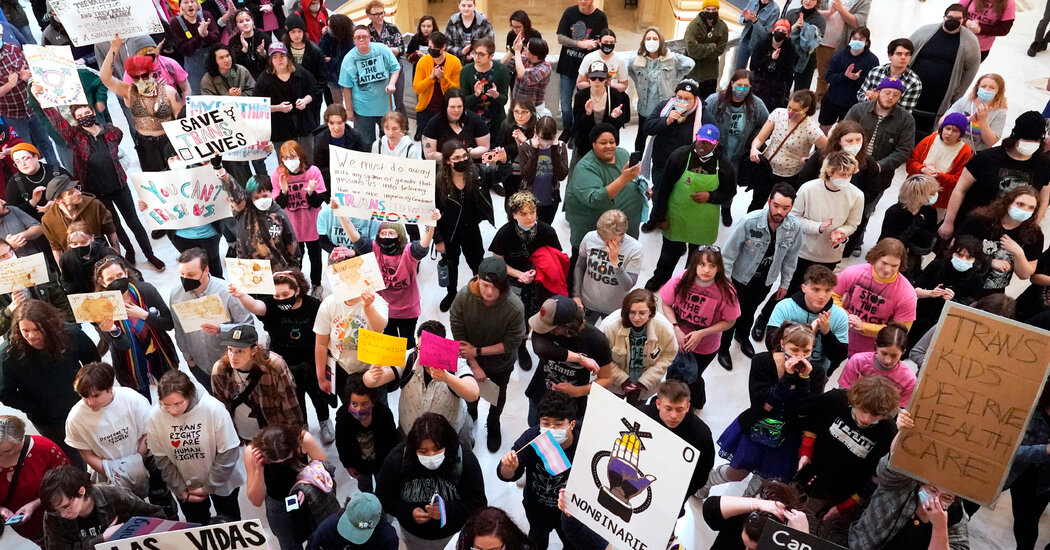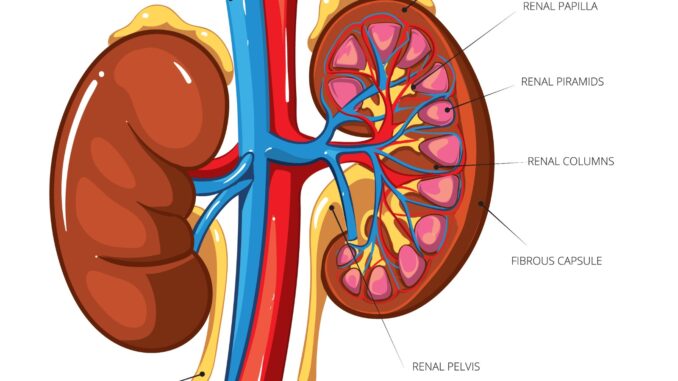Transgender and nonbinary Americans experience stark rates of unemployment and harassment, according to the largest survey of their life experiences to date. The data reflect a longstanding pattern of discrimination at a time when states across the country have passed laws restricting their health care, bathroom access and participation in sports.
The findings come from the U.S. Transgender Survey, which many researchers and policymakers have relied on since a version of it debuted in 2011. The National Center for Transgender Equality, an advocacy group, carried out the latest iteration of the survey in late 2022, garnering responses from more than 92,000 transgender and nonbinary Americans, age 16 and up, from every state in the country.
The group released a preliminary analysis of responses to the survey’s 600 questions on Wednesday, with the full report expected later this year.
The survey was not given to a random sample of transgender people, so it cannot be interpreted as representative of the transgender population as a whole. It also skewed young, with 43 percent of respondents ages 18 to 24.
Still, there were more than three times as many respondents as there were in 2015, the last time the survey was conducted, when 28,000 people participated.
“You don’t see data sets like this,” Sandy James, an attorney and the lead researcher of the new survey, said in a press briefing. “Tens of thousands of trans people knew that it was imperative that they make their voices heard.”
Many respondents reported financial challenges. Eighteen percent of survey respondents said they were unemployed, much higher than the national rate, and one-third said they had experienced homelessness at some point in their lives. More than one-quarter reported not seeing a doctor when they needed to in the previous year because of high costs.
Nearly one-third of survey respondents said they had been verbally harassed in the previous year, and three percent of respondents said they were physically attacked in the last year because of their gender identity.
But they also reported positive experiences. An overwhelming majority of respondents — nearly 94 percent — said they were more satisfied with their lives since transitioning. Among those receiving hormones, 98 percent said the treatments had made them more satisfied with life.
Since the 2015 survey, state legislatures have grown considerably more hostile toward L.G.B.T.Q. people, with restrictions on health care for minors and adults, library books, bathroom access, sports participation in schools and gender identification on legal documents. State legislatures are now considering nearly 400 such bills, according to the American Civil Liberties Union.
Nearly half of the 2022 survey respondents said that they had considered moving in the previous year because of restrictive bills passed or introduced in their state, and 5 percent said they had moved. Forty-four percent reported serious psychological distress in the previous 30 days.
The results seem largely in keeping with the findings from 2015, although the group has not yet compared the data in detail, Dr. James said.
“A steady condition, environment, has been created in which people are not able to thrive,” Dr. James said. “And trans people are trying to move through their lives, as anyone else in the United States wants to do.”
The 2022 survey was the first to include respondents ages 16 and 17, and they comprised more than 8,000 of the total respondents. Adolescents were excluded from some of the preliminary report’s other analyses, such as those related to their experiences with medical treatments, but they will be included in the report published later this year.
Sixty percent of teenagers reported mistreatment at school, including verbal harassment, physical violence and online bullying, as well as being barred from using their chosen names, pronouns or the bathroom matching their gender identity. Minors were also more likely than adults to report having family members who were not supportive of their gender identity, and 5 percent said that family members had been violent toward them because they were transgender.
#Transgender #Americans #Face #Stigma #Financial #Hardship #Survey #Finds



